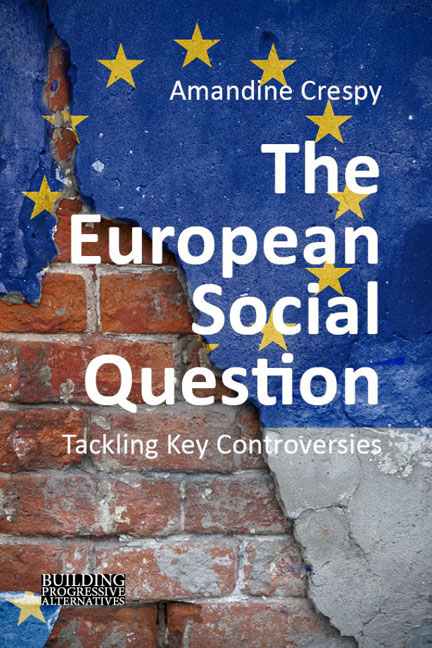Book contents
- Frontmatter
- Contents
- Acknowledgements
- Abbreviations and acronyms
- Dedication
- Introduction: “Social Europe” – irrelevant, catching up or dangerous?
- 1 What is the European social question?
- 2 Is the EU a key player in addressing social issues?
- 3 Are socially minded actors too weak in EU policy-making?
- 4 Is European social regulation a thing of the past?
- 5 Does liberalization undermine social cohesion?
- 6 Does the European social dialogue really protect European workers?
- 7 Does soft coordination support welfare states?
- 8 Is redistribution unconditional?
- 9 Is the EU fit for the social challenges of the twenty-first century?
- Conclusion: from the social question to the democratic question
- Index of CJEU judgments
- References
- Index
3 - Are socially minded actors too weak in EU policy-making?
Published online by Cambridge University Press: 20 December 2023
- Frontmatter
- Contents
- Acknowledgements
- Abbreviations and acronyms
- Dedication
- Introduction: “Social Europe” – irrelevant, catching up or dangerous?
- 1 What is the European social question?
- 2 Is the EU a key player in addressing social issues?
- 3 Are socially minded actors too weak in EU policy-making?
- 4 Is European social regulation a thing of the past?
- 5 Does liberalization undermine social cohesion?
- 6 Does the European social dialogue really protect European workers?
- 7 Does soft coordination support welfare states?
- 8 Is redistribution unconditional?
- 9 Is the EU fit for the social challenges of the twenty-first century?
- Conclusion: from the social question to the democratic question
- Index of CJEU judgments
- References
- Index
Summary
As in other federal systems such as the United States or Canada, social policy within the EU is not the purview of a specific institution but is shaped in a fragmented way by a multiplicity of actors (Leibfried & Pierson 1995). These sometimes form alliances in public policy networks and communities and depend on each other in the framework of the multi-level governance that characterizes the EU. Yet, beyond legal prerogatives and institutional dynamics, the making of EU social policy is the product of underlying political struggles. As highlighted in the previous chapters, the area of social policy has always been one of symbolic projection for normative debates around social justice and soli¬darity among European citizens and states. Thus, the pursuit of a (more) “Social Europe” has been historically supported by some actors and resisted by others. And those struggles have been in flux.
In the early days of EU integration in the 1950s and 1960s, entrepreneurs of social policy at the EU level actively promoted the emergence of a distinct body of EU social law (Fertikh 2016). Although representatives of trade unions were relatively marginalized in the new architecture of the EEC (compared to that of the ECSC), lawyers, experts and officials within the Directorate General (DG) of the European Commission for Employment, Social Affairs and Inclusion (EMPL) have drawn on specialized knowledge to build a transnational policy field, which was nevertheless perceived as relatively weak compared with other areas such as competition policy, finance or trade. These actors engaged in inter¬pretation struggles over the Treaty of Rome, intrinsically rooted in economic liberalism with the assertion of the four freedoms, and progressively succeeded in asserting a space for embryonic European public policy in the social realm (Fertikh 2017). Some 60 years on, what does it look like?
Today's literature is populated with contrasting assessments of the EU institutions and their role vis-à-vis social policy. The EU Commission has been depicted as a social policy entrepreneur (Pierson 1996; Wendon 1998) or as an agent focused on market-making and liberalization (Crespy & Menz 2015a).
- Type
- Chapter
- Information
- The European Social QuestionTackling Key Controversies, pp. 45 - 70Publisher: Agenda PublishingPrint publication year: 2022

